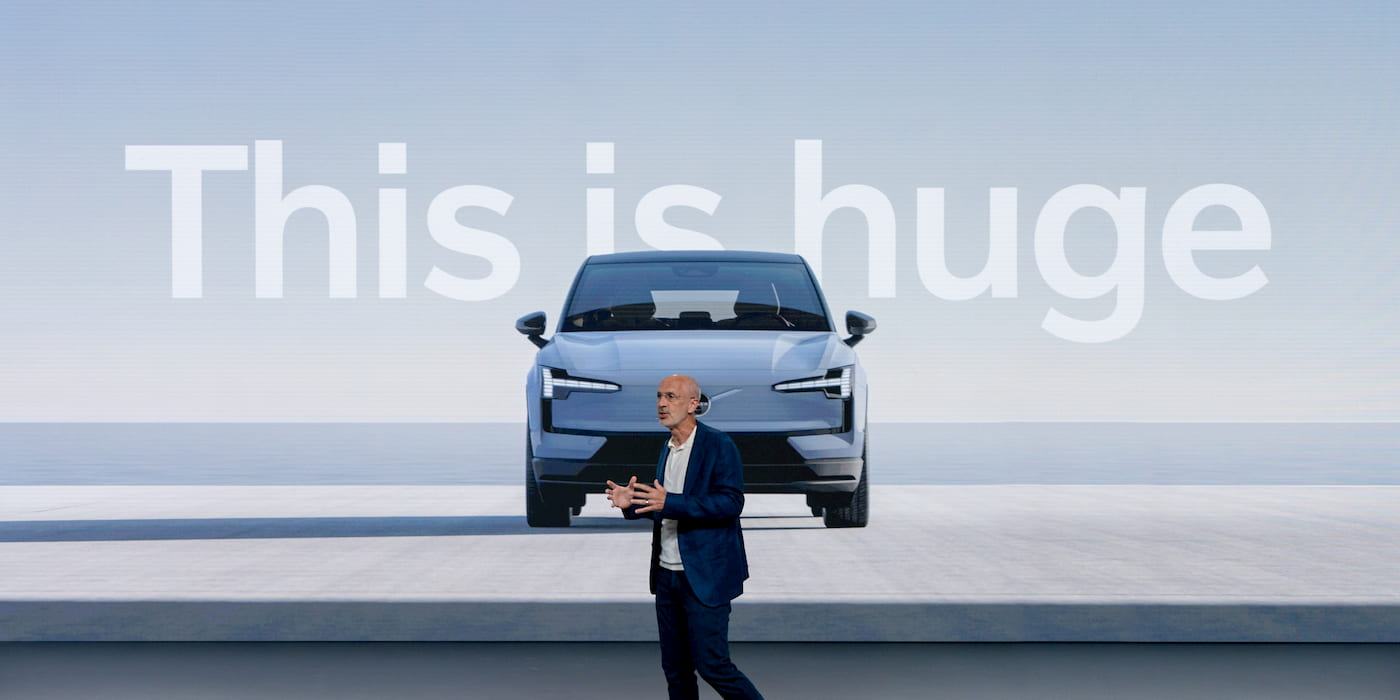
Another automaker is adjusting its near-term electric vehicle target. Volvo is scaling back on its 100% EV pledge by 2030. The company said stronger government support is needed to advance the transition.
Volvo was one of the first automakers to set a 100% EV sales goal by 2030. The announcement was made over three years ago in March 2021.
The plan was to sell only fully electric cars while phasing out “any car in its global portfolio with an internal combustion engine, including hybrids.”
Volvo’s former chief executive, Henrick Green, explained, “There is no long-term future for cars with an internal combustion engine,” adding, “Instead of investing in a shrinking business, we choose to invest in the future.”
It looks like those plans are now changing. Volvo announced Wednesday that it was adjusting its electrification strategy.
Volvo is scaling back its 100% EV pledge by 2030. The new plans call for 90 to 100% of global sales to be electrified, including EVs and plug-in hybrids (PHEVs). Or, in other words, “all cars with a cord.”
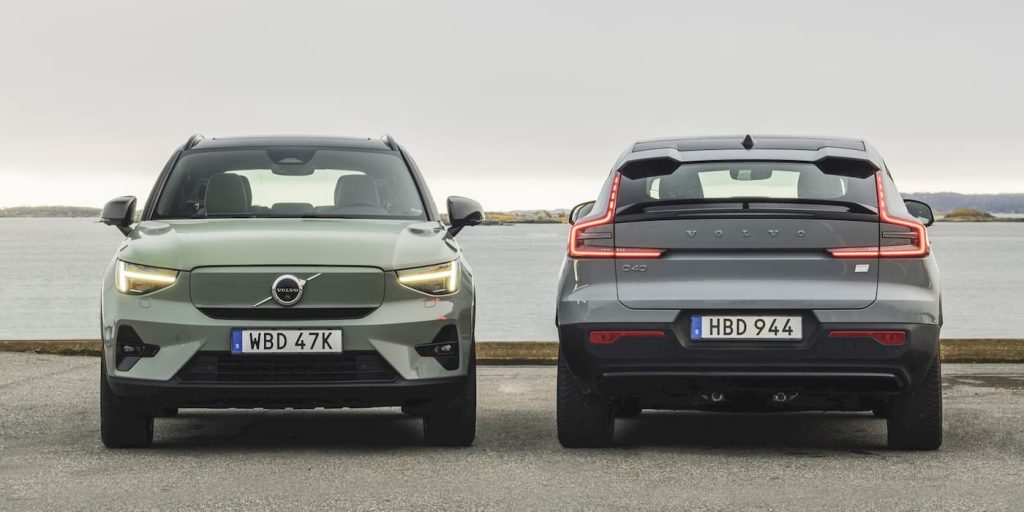
Volvo walks back 100% EV pledge by 2030
The other up to 10% will be “a limited number of hybrids” if needed. By 2025, Volvo expects 50 to 60% of sales to be electrified.
Volvo has already launched five all-electric models: the EX40, EC40, EX30, EM90, and the EX90. After delivering its first model in January, the Volvo EX30 is already the third best-selling EV in Europe.
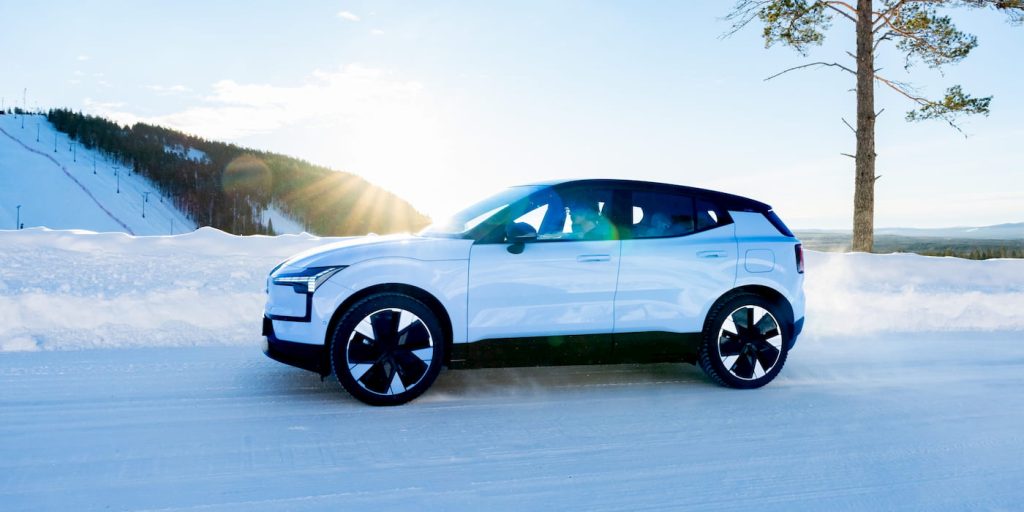
Another five EVs are in development. However, Volvo said the shift comes as the charging infrastructure rollout has been out slower than expected, and government incentives have been withdrawn.
Volvo is calling for stronger and more stable government policies to support the transition to EVs.
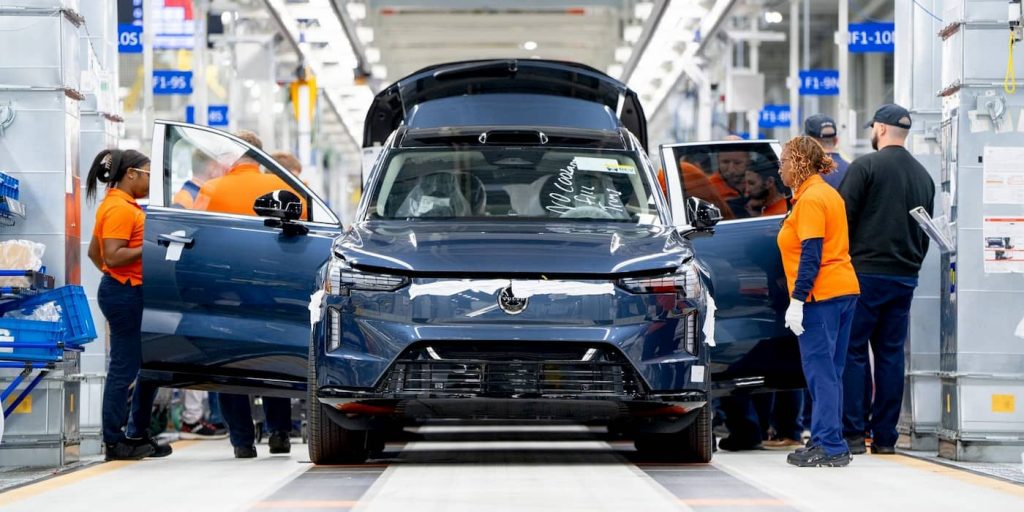
Volvo Cars CEO Jim Rowan explained, “We are resolute in our belief that our future is electric.” He added, “An electric car provides a superior driving experience.”
Despite this, “it is clear that the transition to electrification will not be linear, and customers and markets are moving at different speeds of adoption,” Rowan explained.
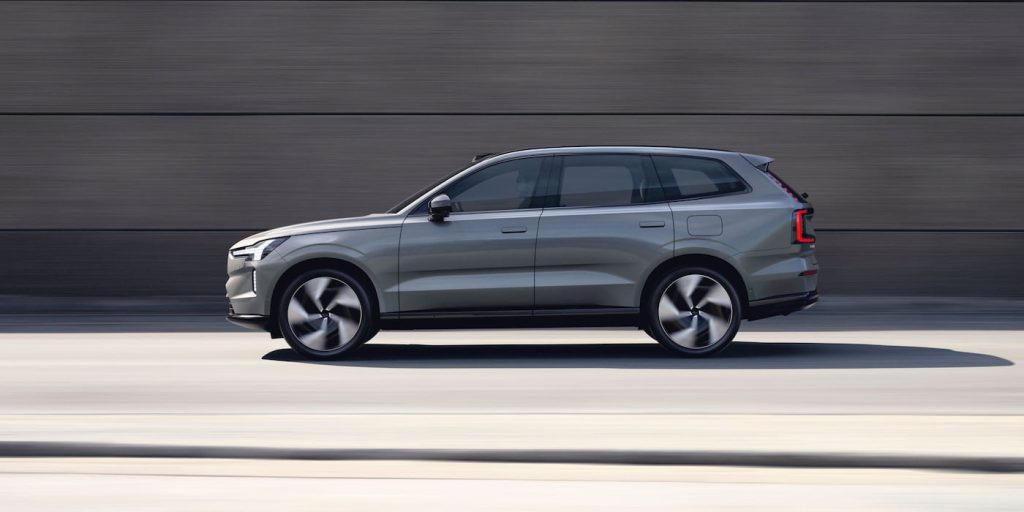
Volvo also adjusted its CO2 reduction goal. The company aims to reduce CO2 emissions per car by 65% to 75% by 2030 (using 2018 as a baseline). That’s down from the previous 75% reduction target.
Next year, Volvo aims for a 30 to 35% reduction (with 2018 as a baseline), down from 40%. The company is still working with suppliers to cut CO2 emissions across its value chain.
Electrek’s Take
With two new electric SUVs, the EX30 and EX90, rolling out, Volvo still expects all-electric vehicle sales to pick up.
Volvo’s first US-made EX90 rolled off the assembly line in June, with deliveries kicking off this month.
The EX30, starting at $34,950, will be one of the most affordable EVs in the US. However, Volvo cited new tariffs on EVs imported from China as another reason for the adjustment.
The US announced a 100% tariff while Europe is planning to slap an extra 36.3% tariff. Volvo’s EX30 is made in China, but the company will begin production in Belgium to bypass the additional duties.
Volvo’s announcement comes after several automakers, including Ford, GM, and Mercedes-Benz, revealed similar adjustments.
With legacy automakers scaling back, it could give pure EV makers, like Tesla and Rivian, even more time to grab market share.
